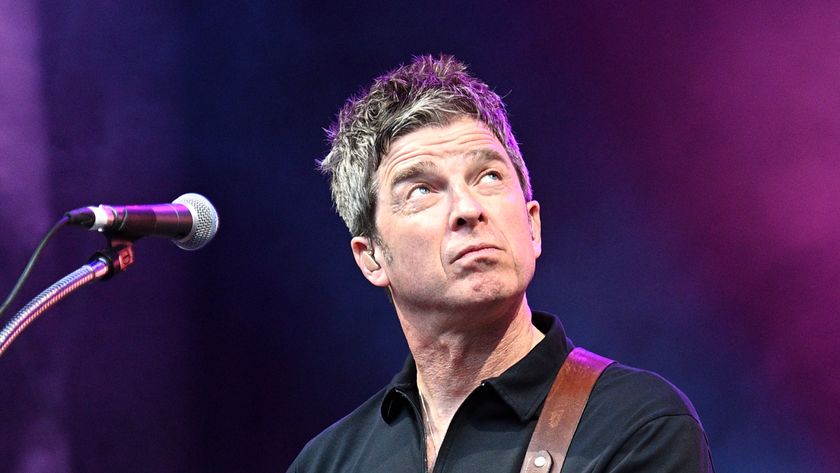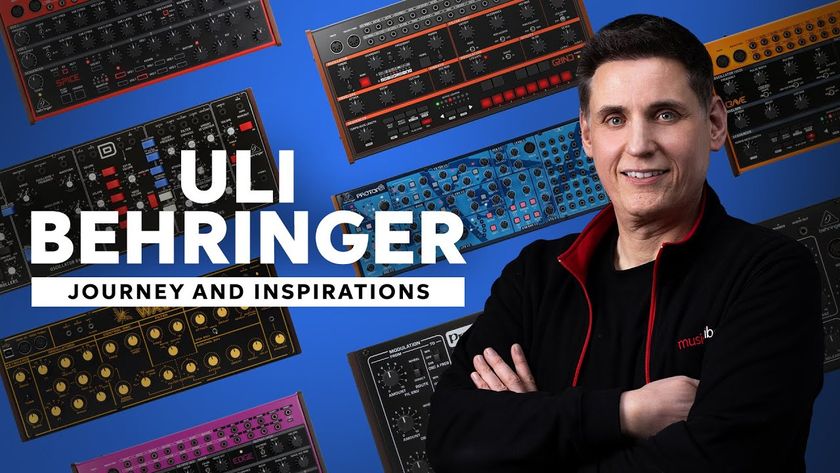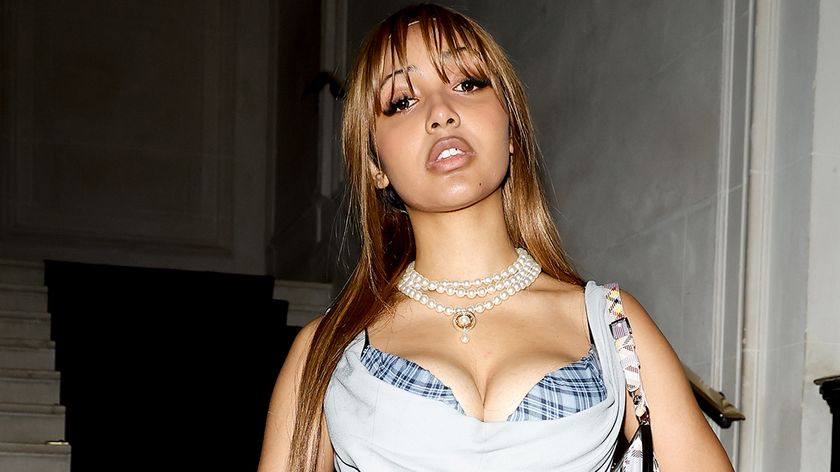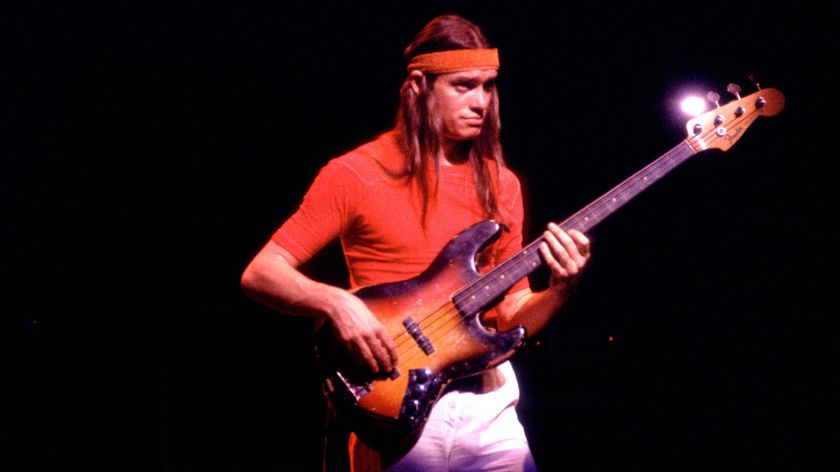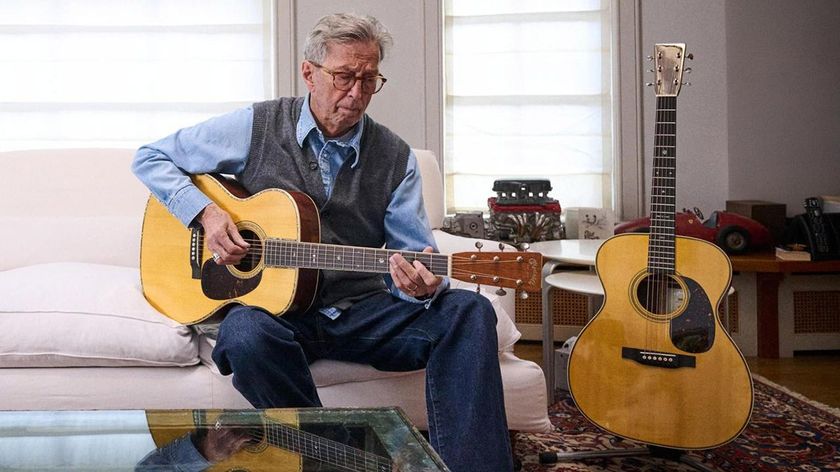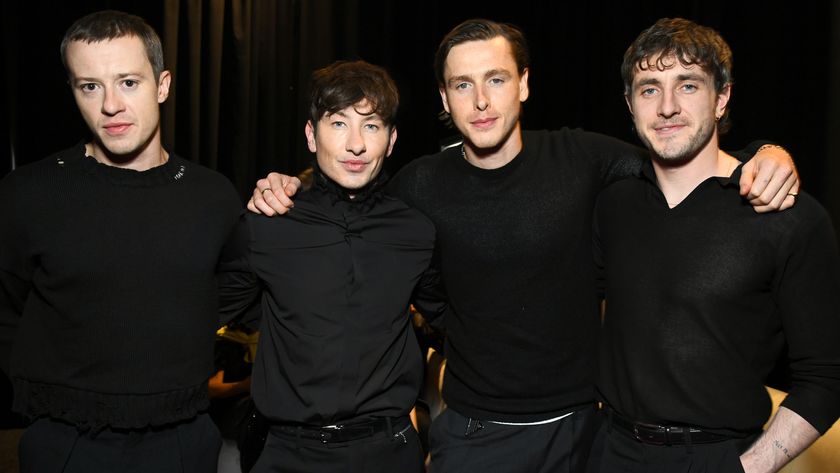Howie B on hardware, switching to Logic, plugins and production
"Being in the studio with people like Bono, The Edge and Ry Cooder... I almost can't believe it happened"
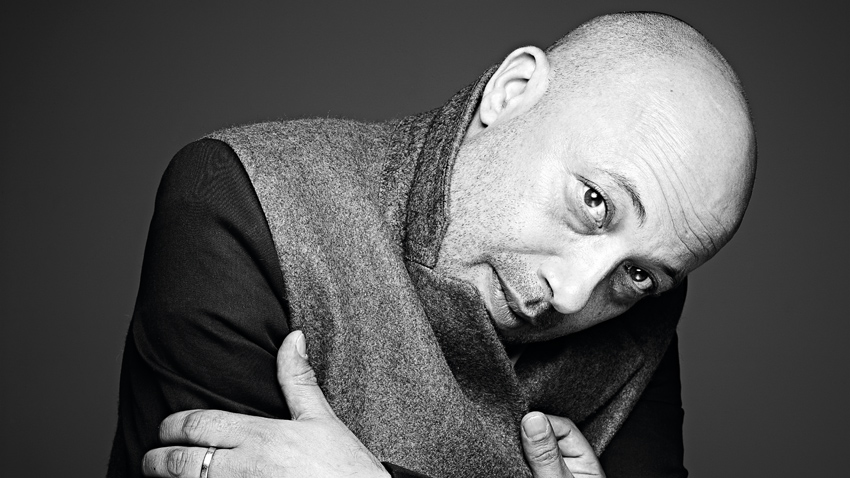
"A year ago, I probably wouldn't have been much use to a magazine like Computer Music," explains Howie B with a chuckle. "If I was working with other people, yes, I used things like Logic and Pro Tools, but my own setup was pretty lo-tech. I only stopped using my Atari and C-Lab Notator about six months ago!"
He can't resist another throaty, roguish cackle. "I was turning up to all these hi-tech, multimillion-pound studios with a grubby fucking Atari that was worth about 50 quid. Even my mates were beginning to take the piss."
But the Glasgow-born producer refuses to be embarrassed by his 'old-fashioned' methods, and the Atari still sits proudly next to the bright, shiny MacBook Pro in his north-London studio - it even made appearances on the new album, Down With The Dawn.
"C'mon, we all know that making music is not about what gear you've got - it's all about attitude and feel. Whether I'm working with U2 or on one of my own tracks, it's about pushing the music, the people and the ideas as far as you can. That's when the magic happens!"
You managed to hang on to the Atari for a long time. What prompted the final move to a Mac?
"Film soundtracks. I was getting offered loads of soundtrack and score work, and the Atari was sort of limiting me a bit. Doing this job involves a lot of travelling; working in other studios with other systems. I was pulling out the Atari and I could hear people saying, 'What the hell is that?' The Mac is easier to carry, it's easier to integrate with other systems - I just need to turn up with my little bag and a USB keyboard, and I'm away."
But you've still got the Atari in the studio? And you still use it?
Get the MusicRadar Newsletter
Want all the hottest music and gear news, reviews, deals, features and more, direct to your inbox? Sign up here.
"God, yeah! I'll never get rid of it. It was the clock for several tracks on the new album, running a whole bunch of hardware. What I love about the Atari is that it doesn't colour the sound of your music in any way; it's just there to make everything run in time, and it does that better than any other bit of gear that I've ever come across. My main complaint about the move to Mac and Logic is that, every time I play a song, it seems to sound different."
"C'mon, we all know that making music is not about what gear you've got - it's all about attitude and feel."
You've presumably had a chance to mess around with most platforms... why did you settle on Logic?
"Number one was the sound. Like I said, I was a bit disappointed by the fact that the digital world seems to affect the sound of the music. To my ears, Logic was the best of the bunch... what I mean is that it didn't interfere with things as much.
"And, number two, it's absolutely brilliant with MIDI. As somebody who comes from that world, I wanted a platform that I could recognise and work with. With Logic, I can get straight in there - I can connect my Juno or the Nord. Bang-bang, two or three buttons and I'm away.
"There are my reasons: it's simple, it allows me to interface with my hardware, and it sounds fucking good! What more do you want?"
You weren't tempted to ditch the hardware and move totally onboard?
"Ha! Are you joking? [Laughter continues for some time] Ditch my Moog and my Juno and my JX-8P?"
There are virtual equivalents.
"I've never done a straight A/B between a Moog and a plugin Moog, but if I want a Moog sound, I am always, always going to use the real thing. As far as I'm concerned, that isn't where the positives and strengths of the digital world are concentrated. What's the point of trying to recreate a Moog when the Moog is already out there?
"The beauty of soft synths is that you can get something new - you can get a whole different set of sounds and ideas. They have a unique feel, so let's make use of that."
Which ones have found their way onto the Howie B Mac?
"The Native Instruments package - I've got the whole shebang [Komplete] - is my go-to set. Massive, of course; Razor and Kontakt; the Hammonds are just incredible... really strong, powerful and weighty. And there are some amazing strings out there, like the Spitfire library.
"Would I prefer to use real strings on every tune I work on? Of course! I've been lucky enough to be in a big studio, listening to the majesty of a full orchestra, but ninety-nine times out of a hundred, there's neither the budget nor the time to record real strings.
"Getting a decent string sound is all about attitude. I've produced pieces of music for soundtracks and people have come back to me saying, 'Howie, we can't use this because it's got MIDI strings. It sounds too underground.' I'm like, 'Is the music any good? Does it work in the soundtrack? Who cares if they're MIDI strings?' I guarantee that no one will be sitting in the cinema thinking about whether they're MIDI strings or real strings. Most people don't fucking care, as long as it sounds good.
"Don't get me wrong - a decent MIDI string sound involves a lot of hours and a lot of hard work. Go and see real strings - go and listen to real strings. Whenever I've worked with real strings, I would sit there watching how the guys played their instrument and listening to how the sound developed its character. The lift, the swell, the tremolo, the delay on the violins... You can spend ages trying to do it with automation, but I love that job. I love trying to introduce the random element that makes technology sound like humans. It's something that played a huge part on the new album."
"The beauty of soft synths is that you can get something new - you can get a whole different set of sounds and ideas. They have a unique feel, so let's make use of that."
How?
"There's a track on the album called Run Always. It started with a 16-bar drum loop and, out of interest, I started taking the snare, sending that to an effect, sending the effect to another effect and sequencing that second effect using other elements of the loop. Does that make sense?
"I built up six or seven different elements, repeating the process and making slight changes each time. As I was listening back, I kept thinking, 'Jesus, this sounds like a real drummer.' It was all those minuscule little changes - they made it sound live, even though it was just me at the desk, playing around with reverbs and gates.
"And the most bizarre thing was that, out of all my tinkering, a key started to emerge. Somehow, somewhere a note had started to form. So, I took the kick drum, dropped it an octave, reversed it, gave it some tone and suddenly I've got what sounds like a bassline. I hadn't played a bassline, but the way that all these sounds were interacting with each other had created one. The machines had played something!
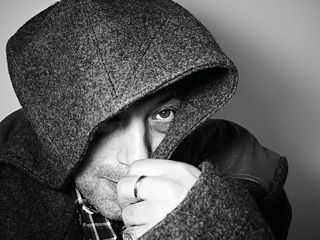
"After that, there was no stopping me. I loaded up Razor and tuned every note on the keyboard to this 'key' that the song was now in. I hit record and just pretended I was Rick Wakeman for about eight or nine minutes. It was beautiful - I played with the naïve freedom of a child, unafraid that I might be hitting the wrong note. I was going on instinct alone.
"When my mate heard it, he said, 'The quantise on that is fucking mental.' I just laughed. There was no quantising at all. I left it as it was."
Are you musically trained? Can you play an instrument?
"Well, I've learned to pick away on things over the years, but, technically speaking, I can't play a fucking thing! As I've just explained, I need the help of technology to make me sound good.
"In my previous life, it was different. Ha! In my previous life, I was a brilliant percussionist; a Brazilian timbale player. That's how I started out way back in the early days. I got myself a 606 drum machine and started picking out little rhythms. I had no idea about chords or all that stuff, but I could tap out beats, and that was all I needed."
What were the tunes and who were the artists that inspired you back then?
"Musically, I knew I was soon going to reach the limits of my capabilities, so I thought, 'Right, you need to get some technical know-how behind you; find out how this stuff is done.' I suppose I saw it as my apprenticeship... treating it like a job or a trade. I moved to London and literally spent a year and a half trying to get a job in a studio. I didn't mind being a teaboy, a runner or sweeping up, as long as I could get myself into that environment.
"As it happened, I ended up getting a job in the studio where Hans Zimmer was doing a lot of his soundtrack work. It was a hotbed of creativity and talent; just a crazy place to be. And I fucking loved it!
"The main thing I had going for me - bearing in mind that I wasn't a trained musician - was the whole work ethic. I realised what an opportunity this was for a young kid in his early 20s and I dedicated my whole life to it. All my social life and mates and girlfriends went out the window."
"Being in the studio with people like Bono, The Edge and Ry Cooder was... [laughs] Just saying it out loud still sounds weird to me!'"
Apart from tinkering around on the 606, had you made any attempt to start recording your own tunes?
"Not until I started work at the studio. Suddenly, I realised I had the key to this amazing room and, after the session finished, there was nothing to stop me having a little play around. That's where I got to know things like the [Akai] S900, the Roland System 700, the Moog Modular, the [Akai] MPC60, the monster Fairlight sampler... all being sequenced via a Linn 9000.
"Looking back now, that seems totally fucking mad - the display was about as wide as a Biro - but all the big names, like Prince, were sequencing with it. I'd bang out my tunes, clear the desk and get ready for the next session. I practically lived in that studio. And the brilliant thing is that, even today, I'm still making use of ideas that I learned all those years ago. It's still in there - it's still useful."
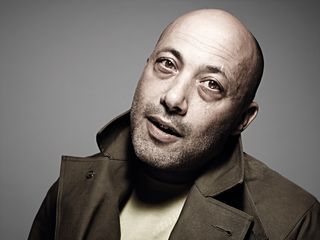
Your reputation as a producer, engineer, remixer and ideas man has led to some pretty impressive collaborations. Tricky, Björk, Leftfield, New Order and, of course, U2. Does each job require a different set of skills?
"Hmm, good question. No, I don't think it does require different skills. I'd like to think it's all just me being me. You go in there and you push the fuck out of everything and everybody. You try and make things happen. The only thing that changes is the amount of tea I drink."
What's been your favourite collaboration?
"I don't like to use the word 'favourite', but being in the studio with people like Bono, The Edge and Ry Cooder was... [laughs] Just saying it out loud still sounds weird to me! I almost can't believe it happened.
"And also Robbie Robertson from The Band. I'm doing an album with him at the moment. The guy is 70 years old, and he's still got the same hunger he had back in the '60s.
"Things like that are constantly inspiring. I hope I can hang on to that hunger and that desire to create music because, without it... well, it doesn't matter how much gear you've got and how many millions the studio cost - without that hunger, you're not gonna deliver the goods."
Howie B's new album Down With The Dawn is out now on HB Recordings/P.I.A.S. For news, music, vids, tour dates and more, go to www.howieb.com


Computer Music magazine is the world’s best selling publication dedicated solely to making great music with your Mac or PC computer. Each issue it brings its lucky readers the best in cutting-edge tutorials, need-to-know, expert software reviews and even all the tools you actually need to make great music today, courtesy of our legendary CM Plugin Suite.

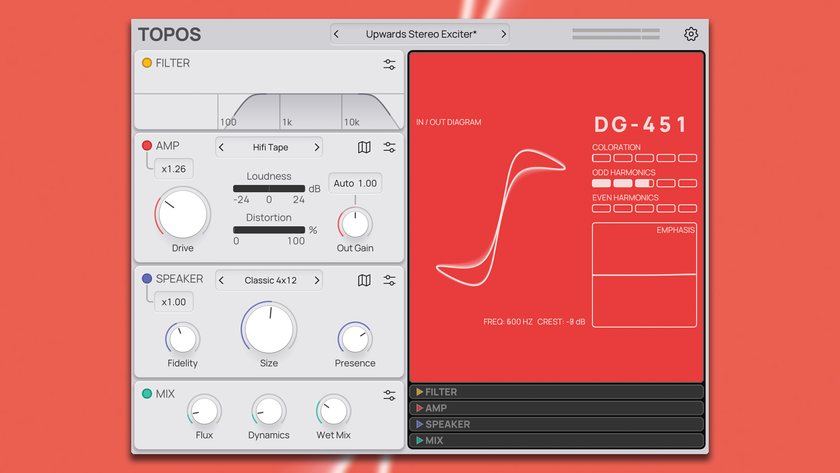

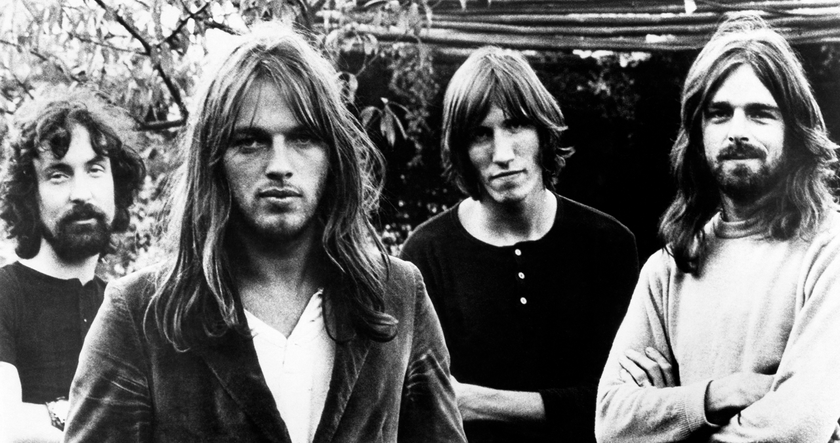


![Chris Hayes [left] wears a purple checked shirt and plays his 1957 Stratocaster in the studio; Michael J. Fox tears it up onstage as Marty McFly in the 1985 blockbuster Back To The Future.](https://cdn.mos.cms.futurecdn.net/nWZUSbFAwA6EqQdruLmXXh-840-80.jpg)
